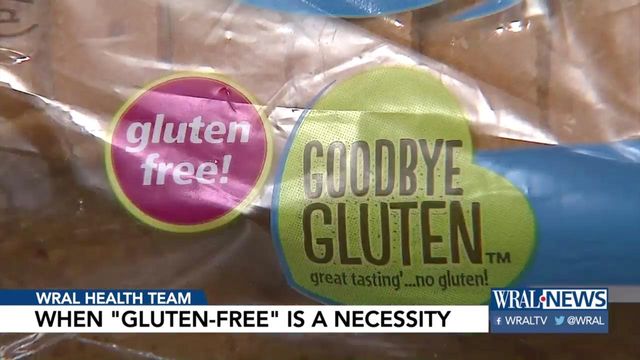Gluten-free diet helps manage celiac disease
More grocery stores now include gluten-free products, and for some people, it's not just a trendy diet but a necessity.
Posted — UpdatedMore grocery stores now include gluten-free products, and for some people, it's not just a trendy diet but a necessity.
Most people can pick from almost anything they find on grocery store shelves. People with celiac disease, though, have to spend more time searching for food that is specifically labeled gluten-free.
The diet helps keep the disease in remission.
"Gluten is hidden in so many different things that it's not easy to go to the annual picnic and find things that you can actually eat," said Cleveland Clinic gastroenterologist Dr. Donald Kirby.
Kirby said celiac disease is an autoimmune disorder. It causes people to feel stomach and intestinal distress after they consume foods with gluten, which is a protein found in wheat, rye and barley.
Celiac disease is one of the most common genetic diseases in the world, affecting about 1 percent of the population. Adult women are more frequently diagnosed with it than men.
WRAL Health Team's Dr. Allen Mask says people should be screened for the disease if they experience chronic bloating and alternating between diarrhea and constipation. People who have been diagnosed with irritable bowel syndrome should be screened for celiac disease.
Screening for the disease can be done with a simple blood test. If the test comes back positive, a small bowel biopsy should be performed during an upper endoscopy procedure.
If someone is diagnosed with celiac disease, the person's parents and children should also be tested because it is a genetic disease. If it's left untreated, it can lead to other auto-immune disorders as well as nutrient deficiencies and disorders such as lymphoma.
The cure is a gluten free-diet, which can be challenging.
However, more products with gluten are now more clearly labeled, and a wider variety of gluten-free products can be found in more stores.
"By changing the diet to exclude wheat, rye and barley—hence, a gluten-free diet—you can treat the disease very well have the disease go into remission," Kirby said.
Mask recommends people diagnosed with celiac disease should seek a registered dietician to help them make the necessary dietary changes.
People should also work with their doctors to make sure they remain in remission and keep their vitamin levels where they should be.
• Credits
Copyright 2024 by Capitol Broadcasting Company. All rights reserved. This material may not be published, broadcast, rewritten or redistributed.





